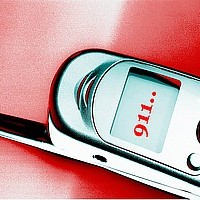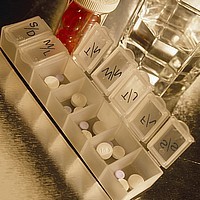|
|
|
Clinical Depression
major depression, bipolar disorder & dysthymia
The various diagnostic categories of clinical depression--Major Depressive Disorder, Bipolar Disorder and Dysthymic Disorder--are sometimes referred to as mood disorders. These are the problems that I get the most satisfaction out of working with in my practice, and they constitute over half of my clientele.
Major Depressive Disorder is by far the most common of the mood disorders. About 70% of all diagnosed mood disorders are classified as major depression. The other 30% are evenly divided between bipolar disorder and dysthymia. An episode of major depression can come on in a matter of weeks. Major depression often follows either a significant loss or a time of prolonged stress in one's life. A demotion at work coupled with marital strife and the anniversary of the death of a parent is the sort of scenario that can trigger an episode of major depression. Divorce, loss of employment, or health issues are often precipitators. Some precipitators are more subtle, such as the accumulated effects of long term financial problems coupled with taking care of a chronically ill loved one. These cases are sometimes referred to as reactive depression. When there are no apparent losses or stressors and ones biological predisposition appears to be the cause then it is sometimes termed endogenous depression. |
 |
 |
|
|
 |
Here are the signs and symptoms of a major depressive disorder:
- Feeling deep sadness most of the day, every day for at least two weeks.
- Loss of interest or pleasure in ususal activities.
- Marked changes in appetite--loss of appetite or over-eating.
- Insomnia or hypersomnia (sleeping too much).
- Fatigue or greatly reduced energy.
- Either agitation, or a distinct slowing of speech and movements.
- Feelings of worthlessness or inappropriate guilt.
- Difficulty concentrating or feeling indecisive.
- Recurrent thoughts of death or suicide.
The presence of five or more of these nine categories over at least a two week period indicates a major depression. |
|
A major depression is often foreshadowed by a change in sleep patterns. There is usually restless sleep accompanied by a pattern of early awakening. The depressed individual may awaken anywhere from one to three hours before their usual time. They will be unable to fall back to sleep and will lie in bed with a growing sense of despair and dread about the coming day. They may worry obsessively about what a long and tiring day lies ahead of them. After days or weeks of poor sleep they may begin to feel fatigued and listless. Their output at work or daily activities may become affected.
Irritability usually follows insomnia and fatigue, and at that point relationships with family, friends and co-workers will become strained. The depressed individual begins to feel that they are not their usual self and they may begin isolating and avoiding interactions. Their ability to communicate is affected. They may not feel like talking and their speech may become very slow and labored. Food may seem tasteless and they will find no pleasure in their usual activities. They may begin to have frequent thoughts about dying, feeling trapped or the meaninglessness of life.
At this point, Christian sufferers of depressive reactions often begin feeling ashamed and guilty. They feel their depression shows little faith, or perhaps that God is punishing them. It becomes difficult to reach out and tell others how desperately bad they feel. They feel no hope or warmth in their life, and they wonder how anyone could love them. They may feel as though they deserve this punishment, or they may wonder how a loving God could allow this to happen to them.
|
 |
 |
|
 |
 |
Not all depressive reactions are this severe. Not all will experience as many as or as intense symptoms as those spelled out above. However, depressions of that severity are not uncommon. One can readily see how the intense psychological pain, combined with a loss of hope, can lead to suicidal thoughts.
About 10-15% of severe depressive reactions will lead to suicide. Over 30,000 people in this country will die by their own hand this year, and almost all will have been suffering depressive reactions. I urge any readers or those with loved ones having suicidal thoughts to contact a physician, your local community mental health center or (in some areas) a suicide prevention help-line. Every area in this country has a designated community mental health center whose phone number should be readily available thru the phone book or by calling 411 for information. Those feeling in imminent danger of hurting themselves can call 911 and get immediate assistance.
Recovery from an episode of major depression is often as rapid as its onset, particularly with effective medication management. Antidepressants such as Prozac, Zoloft, Paxil, Wellbutrin, Effexor and others are usually successfully employed by both psychiatrists and primary care physicians in alleviating the symptoms of depression. However, medication should always be paired with counseling. Studies show that both interventions are helpful but are more effective together than either treatment modality by itself. |
|
Bipolar Disorder was formerly known as Manic-Depressive Disorder. As the name implies, a bipolar individual's mood alternates between two polar extremes. At one pole in the cycle is deep depression and at the other pole is a pathologically elevated mood (mania). The length of the cycle from high to high or from low to low can last from a matter of hours to perhaps years in duration.
The state of mania (the high end) is characterized by periods of abnormally elevated, expansive or irritable moods. In this state the individual is usually much more talkative, has a decreased need for sleep and is often rather grandiose. They appear to be going 70 mph in a 25 mile-per-hour zone. Because of that they often become irritated with those going the normal speed limit. They may not understand why others do not feel as joyous and energetic as they. They may stay up half of the night solving the world's problems and feel hurt that others do not appreciate their efforts. The manic state is characterized by poor judgment and foolish spending. Some manics may become very irrational and psychotic to the point of requiring hospitalization.
Typically, a manic episode will last several weeks. During that time considerable damage in relationships, finances and jobs may occur. Savings can be squandered, debts encumbered, and relationships seemingly harmed beyond repair. Sadly, a manic episode is usually not a one time occurrence. Bipolar individuals will tend to have several over the course of their life, and only in about 20% of cases will it be a single episode.
The bipolar individual will often have several years of more or less normal functioning. During that time they may have spells of depression but are able to cope without treatment. Then, suddenly, their mood will inexpicably brighten and the pace of their life quicken. This is often seen as an improvement and is welcomed by them and their family and friends. Individuals in the early stages of a manic episode are often cheerful at home and productive at work--seemingly functioning ideally. Unfortunately, their internal pace continues to speed up and soon they resemble a marionette dancing to the beat of a drummer on speed. More often than not they are in denial about their behavior. They feel great and they resent suggestions that they are becoming erratic or unreasonable. |
 |
 |
|
 |
 |
The treatment of bipolar disorders has largely focused on finding the proper medication and dosage to manage the illness. Since the early 1970s a simple salt, Lithium Carbonate, has been widely and successfully employed to regulate the mood of bipolars. Lithium has been found to be an effective treatment for about 70% of those suffering with the illness. Those that do not respond to Lithium are usually tried on Depakote or other anti-seizure and anti-psychotic medications.
I believe that bipolar disorder is a diagnosis frequently misused. Often, pretty much anyone experiencing mood swings is given the "bipolar" label. In fact they may as likely have its less severe cousin Cyclothymia or be suffering a Borderline Personality Disorder.
There is a sub-category of bipolar illness referred to as Bipolar II. People with this condition are abnormally cheerful and energetic. They are often tremendously productive workaholics and may be very creative. They never reach a state of full-blown mania. Two notable individuals who likely had this disorder are Teddy Roosevelt and Winston Churchill. Both men had ebullient personalities and boundless energy interrupted by spells of depression. Churchill referred to his depressive episodes as his "Black Dog."
|
|
Dysthymic Disorder is the sadness that never seems to go away. Dysthymia comes from the Greek word for "bad mood." It is a long term depression of mild to moderate intensity. Dysthymics are people who have been labeled as chronically sad, pessimistic, negative or morose. Sometimes they are seen as sullen and angry. Clinically, they are described as having low energy, poor self-esteem, ambivalence, irritability, difficulty concentrating and feelings of hopelessness
At one time this syndrome was labeled "neurotic depression" or "depressive personality" and it was thought to be the result of poor parenting or unfortunate childhood experiences rather than a chemical imbalance. The depressive symptoms often coexist with, or in some cases, are masked by alcoholism, drug use, anxiety and panic disorders. Consequently, the depression has often been seen as secondary to the more insistent symptoms of substance abuse or panic.
Today, all of these conditions are yielding to long term treatment with antidepressants, particularly the SSRIs (Prozac, Zoloft,etc). One current hypothesis is that a biological substrate termed "serotonin deficiency syndrome" accounts for not only dysthymia but also for conditions primarily characterized by anxiety, addictions, obsessiveness and anger.
This writer would label himself as dysthymic. And like many dythymics, I can cope reasonably well without medication or treatment. We shuffle thru life holding down responsible jobs and can be good friends and caring family members. We just aren't terribly happy, and life for us often seems empty and unfulfilling. Many dysthymics turn to alcohol or illegal drugs to achieve some euphoria and in doing that greatly complicate their mood disorder. At that point counseling and medication become imperative.
Within the long term context of dysthymia it is possible to suffer episodes of major depression. Periods of intensified stress or a significant loss can trigger an episode of major depression. This is sometimes referred to as "double depression" and at that point the dysthymic finally may come into treatment due to the presence of suicidal thoughts, or appetite and sleep distubances. |
 |
 |
|
|
 |
|
All articles and other written material on this site are copyrighted by Carl Geo. Austin and can be reprinted for commercial use only by the written permission of the author.
Copyright © 2008 Carl Geo. Austin, all rights reserved. |
|